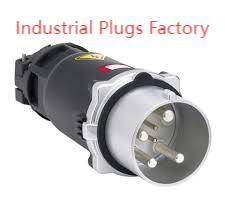-
Fil d’actualités
- EXPLORER
-
Pages
-
Groupes
-
Evènements
-
Reels
-
Blogs
-
Offres
-
Emplois
Nante Industrial Plug Design Focused on Safety and Longevity

In demanding industrial settings, choosing the right connector matters, which is why the Industrial Plug must be specified to match voltage, current, and environmental requirements mid-design; selecting the correct Industrial Plug early prevents overheating, contact failure, and costly downtime. This article explores selection criteria, material choices, safety standards, installation best practices, testing protocols, and lifecycle planning so engineers, purchasing teams, and maintenance crews can make informed decisions for robust power connections.
Matching Connector Types to Application Needs
The first step is understanding the electrical and physical demands: single-phase or three-phase, current rating, voltage class, and whether the application involves frequent mating cycles. For high-current motors, choose connectors rated for continuous heavy loads. For portable or temporary power, prioritize designs with positive locking and splash protection. Outdoor and washdown environments require sealing and corrosion resistance. Always pair the connector to the circuit protection and cabling to avoid mismatches that lead to heat rise and premature wear.
Materials, Contact Technology, and Mechanical Durability
Materials determine longevity. Housings may use engineering plastics for chemical resistance and lightweight advantages or metal alloys when higher mechanical protection is required. Contacts made from copper alloys with silver or nickel plating reduce contact resistance and limit oxidation. Pay attention to strain-relief systems that protect conductors under vibration. Gasketed housings and robust latching mechanisms prevent ingress and accidental disconnection. These mechanical design details directly impact maintenance frequency and operational safety.
Safety Standards, Testing, and Certification (Nante Approach)
Regulatory compliance matters. Specify devices tested to applicable IEC, UL, or regional standards that verify dielectric strength, temperature rise, and mechanical endurance. Independent test reports reduce approval time and provide assurance for inspectors. Temperature-rise tests, endurance cycles, and ingress testing (IP ratings) are essential. Insist on batch traceability and factory quality-control documentation so procurement teams can verify that production lots match the certified performance used during approval.
Installation Practices and Preventive Maintenance
Correct installation preserves connector performance. Use conductors with the correct cross-section and tighten terminals to manufacturer torque settings to prevent hot spots. Cable glands must match cable diameters and include appropriate strain relief to protect contacts under movement. Labeling, polarization keys, and color-coding minimize mismating risks during service. Establish preventive maintenance: periodic torque checks, visual inspection for discoloration or deformation, and contact cleaning where warranted. Infrared thermography during commissioning and routine checks can reveal loose connections before they cause failures.
Designing for Modularity and Future Proofing
Facilities change over time; choose connector families that support modularity. Standardized mounting footprints and keyed interfaces make it simpler to swap or upgrade devices without extensive panel rework. Consider accessory options—earth/signal pins, interlocks, or integrated surge arrestors—if future monitoring or protection is anticipated. Selecting slightly higher-rated devices than the immediate need can provide margin for increased loads or evolving equipment, reducing the need for costly replacements later.
Human Factors and Ergonomic Considerations
Operators and technicians interact with connectors frequently, so human factors matter. Ergonomic grips, clear polarity markings, and connectors operable with gloved hands reduce handling errors and speed maintenance. Interlock systems that prevent live engagement until fully mated reduce accidental energizing. Training on correct insertion and removal procedures, storage, and inspection routines complements good design and prevents misuse that shortens service life.
Supply Chain, Spares, and Total Cost of Ownership
Reliability extends beyond the component—responsiveness of the supplier, availability of spares, and clarity of technical support influence lifecycle costs. Work with vendors who provide clear datasheets, accessories, and spare parts lists. Maintain a small on-site stock of commonly used spares—gaskets, retaining rings, and replacement contacts—to enable fast repairs. Consider warranty terms and whether the supplier supports field replacements or offers remanufactured units to reduce downtime.
Choosing the right connector is a systems decision that blends electrical requirements, environmental resilience, mechanical robustness, safety compliance, and supply-chain planning. Prioritize certified products, durable materials, ergonomic features, and a proactive maintenance program to ensure safe, continuous operation. For detailed product specifications, certified test reports, and configurable Industrial Plug solutions, visit www.nante.com/product/
- Art
- Causes
- Crafts
- Dance
- Drinks
- Film
- Fitness
- Food
- Jeux
- Gardening
- Health
- Domicile
- Literature
- Music
- Networking
- Autre
- Party
- Religion
- Shopping
- Sports
- Theater
- Wellness
